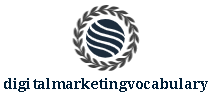What is Keyword Targeting: Defining Your Digital Marketing Strategy
Keyword targeting plays a critical role in the digital marketing landscape. It involves selecting specific words and phrases that potential customers are likely to use when searching for products or services online. By integrating these keywords into various aspects of a digital campaign, from website content to ad copy, businesses can ensure their marketing efforts resonate more directly with their target audience. This technique not only enhances visibility in search engine results but also increases the probability of driving relevant traffic to their digital properties.
Refining the process of keyword targeting is essential for optimizing marketing strategies. It begins with thorough research to identify the most effective keywords that reflect user intent and industry relevance. The precision in choosing the right keywords can significantly impact the success of Search Engine Optimization (SEO) and Pay-Per-Click (PPC) advertising campaigns. Moreover, it provides insights into consumer behavior and market trends, enabling businesses to tailor their offerings and content to match what their audience is searching for.
Key Takeaways
- Effective keyword targeting connects businesses with their desired audience.
- The right keywords can significantly enhance online visibility and relevance.
- Continuous refinement and research are crucial for successful keyword targeting.
Basics of Keyword Targeting
In the realm of digital marketing, keyword targeting is foundational. It determines how we connect with our audience through search queries.
Defining Keyword Targeting
Keyword targeting is the practice of selecting relevant words or phrases that potential customers are likely to use when searching for products or services online. Our objective is to integrate these keywords into our website's content, metadata, and ads to enhance visibility and search engine rankings. These targeted keywords should align closely with our content and offerings to ensure the most effective reach.
- Relevancy: Choosing keywords relevant to our content and user intent.
- Search Volume: Prioritizing keywords that have a sufficient number of searches.
- Competition: Assessing the level of competitiveness for each keyword and selecting those we can realistically rank for.
Importance of Keyword Targeting in SEO
Search Engine Optimization (SEO) is pivotal in making our content discoverable. By targeting the right keywords, we increase the likelihood of appearing on search engine results pages (SERPs), driving organic traffic to our site.
- Visibility: Keywords increase our content's visibility on SERPs.
- Traffic Quality: Proper keyword targeting attracts more relevant visitors.
- User Experience: Well-selected keywords contribute to a coherent user journey, enhancing the overall user experience on our site.
By focusing on keyword targeting, we facilitate a stronger connection between user queries and our digital content, which is integral to SEO success.
Implementing Keyword Targeting
Effectively implementing keyword targeting is pivotal to the success of our content and SEO strategies. It requires meticulous research, understanding of keyword difficulty, and strategic placement within our content.
Researching Relevant Keywords
To begin, we focus on identifying keywords that are pertinent to our business and audience. We employ tools like Google Keyword Planner and SEMrush to source keywords based on search volume, relevance, and our specific goals. Clear-cut metrics guide our selection:
- Search Volume: Higher numbers suggest more interest.
- Relevance: Alignment with our content and user intent.
- Business Goals: Keywords that support our objectives.
We compile our findings into a table for better comparison and decision-making.
|
Keyword |
Search Volume |
CPC |
Competition |
Relevance to Us |
|
example keyword |
10,000 |
$2.00 |
High |
High |
|
another keyword |
8,000 |
$1.50 |
Medium |
Medium |
Analyzing Keyword Difficulty
After pinpointing potential keywords, our next step is to assess their difficulty level. Keyword difficulty is an estimation of how challenging it would be to rank for a specific term. Tools like Ahrefs rate keyword difficulty on a scale from 0 to 100:
- 0-30: Relatively easy to rank.
- 31-70: Moderate difficulty, requires more robust SEO.
- 71-100: Highly competitive, challenging to rank.
We prioritize keywords with an achievable balance between volume and competition.
Integrating Keywords into Content
Once we have our keywords, we integrate them into our content with precision. It’s important that they appear naturally and are contextually relevant to avoid any negative impacts on user experience or search engine rankings. Our strategy includes:
- Title Tags: Incorporating the primary keyword.
- Headings and Subheadings: Utilizing variations and secondary keywords.
- Body Text: Seamlessly weaving keywords where they add value.
- Meta Descriptions: To entice clicks from search result pages without stuffing.
Keywords must add to the readability and serve the narrative we’re delivering. We monitor their placement, density, and context to optimize for both search engines and our audience.

 EN
EN DK
DK SR
SR DE
DE FI
FI